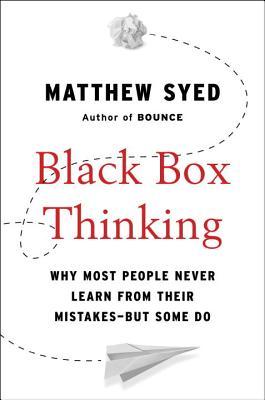 Black Box Thinking: Why Some People Never Learn from Their Mistakes – But Some Do by Matthew Syed
Black Box Thinking: Why Some People Never Learn from Their Mistakes – But Some Do by Matthew Syed
My rating: 5 of 5 stars
This book starts off contrasting two industries – health care and aviation, it shows that in many areas of life, such as health care, we just don’t put the effort into learning from our mistakes. It contrasts these to environments where learning is critical to feed back into making future issues less likely. The book also highlights how blame for accidents in aviation are unfair just because the person accused just randomly happens to be the first person to have experienced that issue, not that they were actually any worse than any other pilot.
The book presents a number of challenges in fostering an environment where learning is the primary motivator and how this environment is extremely difficult to foster and protect, especially in position where peoples reputations are built on not looking too deeply into mistakes.
People don’t like to be wrong, it is almost hard wired into our brains. Through cognitive dissonance we even rationalise to ourselves or change our own interpretations so that we are not wrong. This means it is very difficult to be self critical, no one like to have done something wrong so re-framing things makes us feel better but it does not help us learn.
To ensure that we are properly learning gathering data is not enough, randomised control trial (RCT) are critically important. If we don’t do this we can still gather data which shows improvement but we need to contrast that against not having done something to prove that we did actually make an improvement and we did not just pat ourselves on the back. This combined with experimentation can lead to incremental improvements which add significant value.
Stories are powerful, to the point where people believe stories more than they believe data. If a story sounds logical and people want to believe it they will, even if there is evidence that it is wrong if this data contradicts the story in a way that the reader/listener can not comprehend or believes.